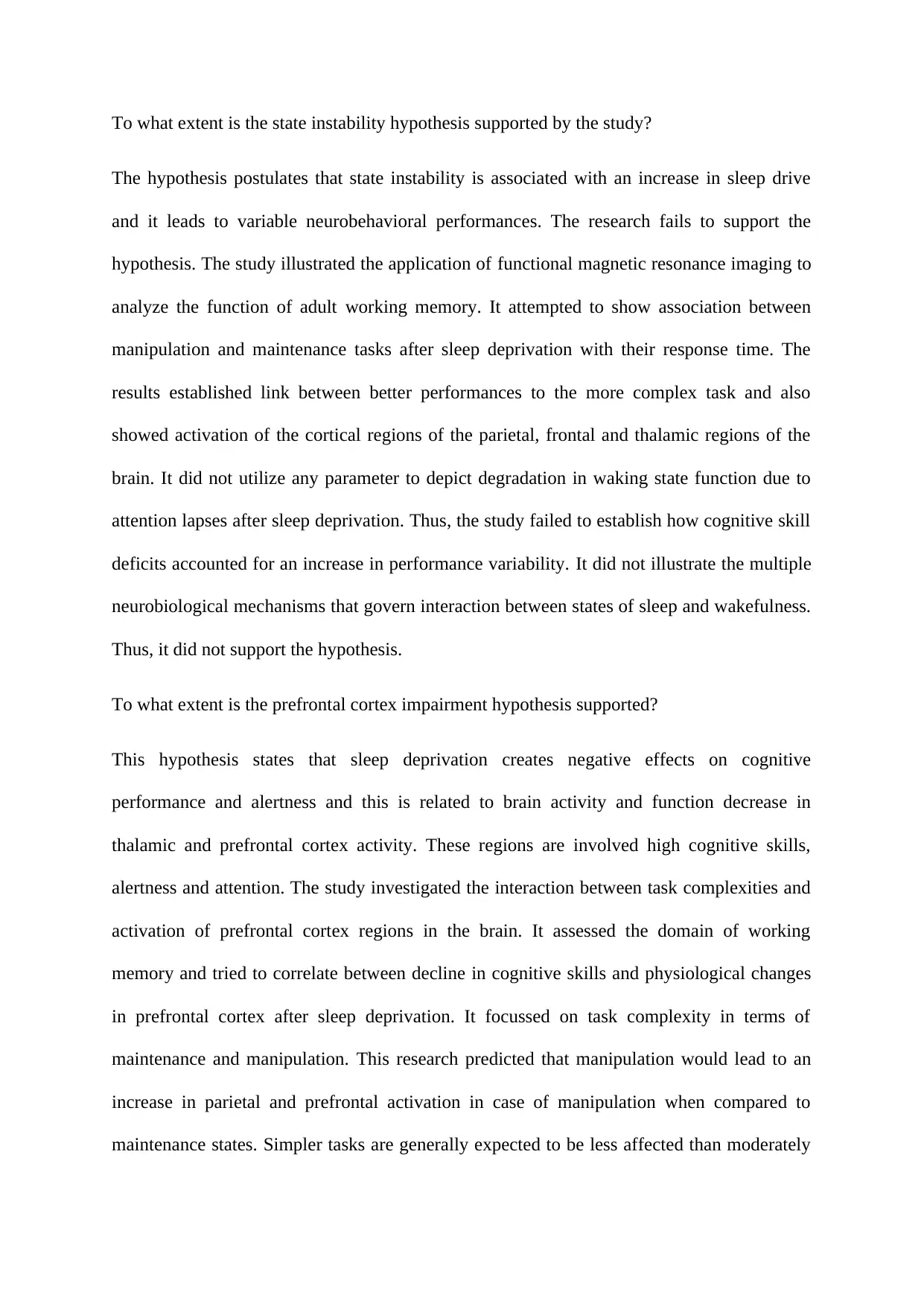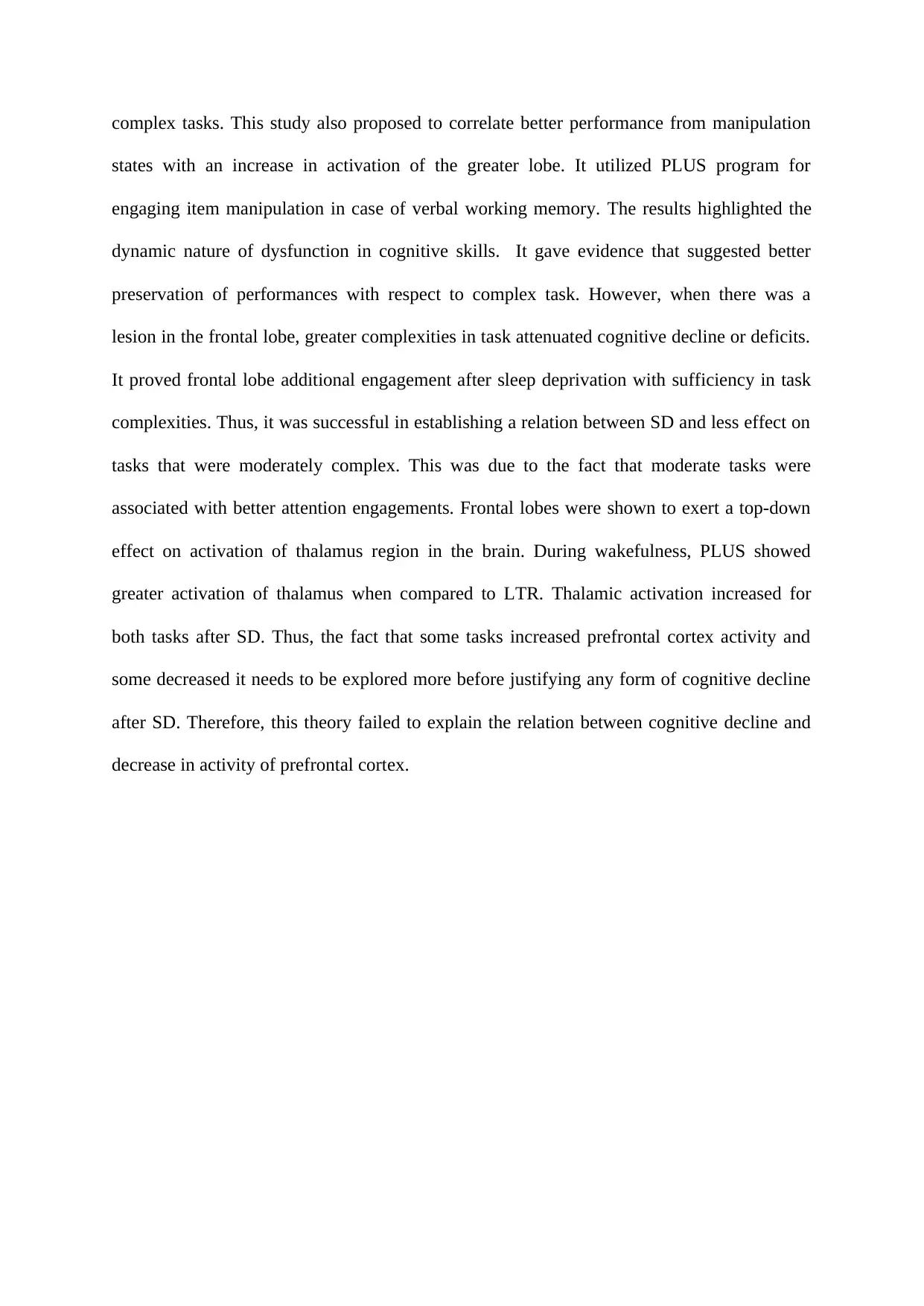Analysis of Sleep Deprivation's Impact on Cognitive Performance Report
VerifiedAdded on 2019/11/20
|2
|556
|304
Report
AI Summary
This report analyzes the impact of sleep deprivation on cognitive performance, focusing on the prefrontal cortex, working memory, and thalamic activity. The study investigates two hypotheses: the state instability hypothesis, which posits that sleep deprivation leads to increased sleep drive and variable neurobehavioral performance; and the prefrontal cortex impairment hypothesis, which suggests that sleep deprivation negatively affects cognitive performance due to decreased activity in the prefrontal cortex and thalamus. The research utilizes functional magnetic resonance imaging to examine the effects of sleep deprivation on working memory tasks, comparing manipulation and maintenance tasks. The results indicate that while the study does not support the state instability hypothesis, it does provide some support for the prefrontal cortex impairment hypothesis, showing that the effects of sleep deprivation vary depending on task complexity, with moderate tasks potentially engaging the frontal lobes to a greater extent and the prefrontal cortex exerting a top-down effect on the thalamus. The report concludes by highlighting the need for further investigation to fully understand the relationship between sleep deprivation, cognitive decline, and brain activity.
1 out of 2








![[object Object]](/_next/static/media/star-bottom.7253800d.svg)